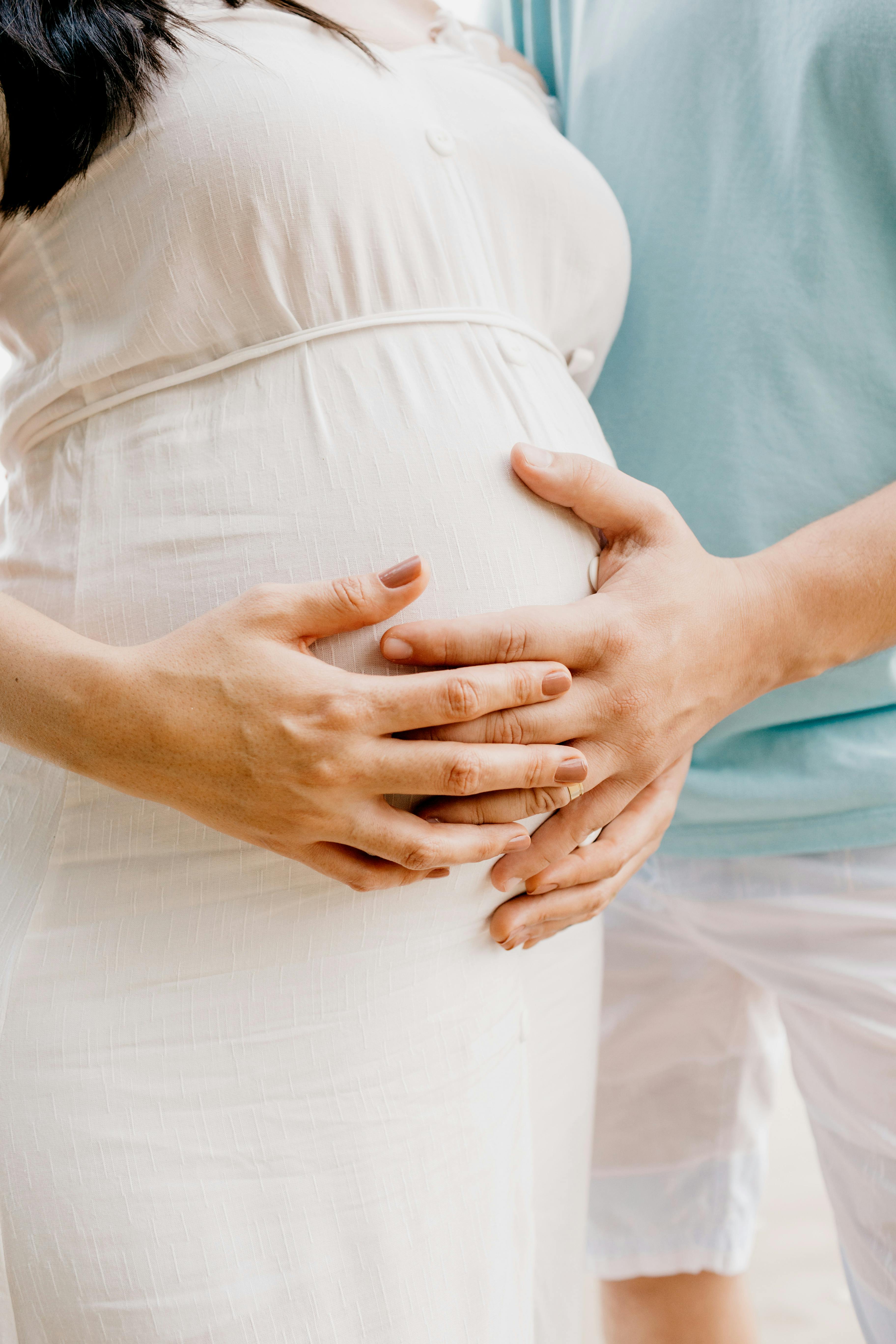


Pregnancy is often portrayed as a time of joy and anticipation, and rightfully so. However, behind the glowing exterior lies a pyramid of challenges that many women face during these transformative nine months in each domain – physical, physiological and mental state.
As there are lot of side-effects when a mother consumes drugs and medications over the counter which are predominantly avoided during pregnancy, so what’s the solution? There enters our complementary/alternative medicine which helps with the troublesome mothers to be starting from cold, fever, headache to induction of labour. In this blog we will be primarily focusing on acupuncture therapy and it’s benefits during pregnancy.
Rooted in Traditional Chinese Medicine(TCM), acupuncture involves the insertion of thin filiform needles into specific trigger or energy points on the body to regulate energy (Qi or Prana) flow and promote healing.
Commonest and most challenging symptoms of pregnancy, nausea and vomiting affects up to 80% of pregnant women. Research has shown that acupuncture can effectively alleviate these symptoms. A systematic review published in *Acupuncture in Medicine* in 2019 analysed 26 randomized controlled trials (RCTs) and concluded that acupuncture significantly reduced nausea and vomiting compared to sham acupuncture or standard treatment alone. The stimulation of specific acupuncture points, such as P6 (Neiguan), is thought to modulate neurotransmitters involved in nausea and vomiting pathways. add citation
As pregnancy progresses, many women experience musculoskeletal pain, including lower and upper back pain, pelvic pain. Acupuncture offers a non-pharmacological approach to pain relief, which is particularly appealing during pregnancy due to concerns about medication safety. A meta-analysis published in Obstetrics & Gynaecology* in 2020 reviewed 30 RCTs and found that acupuncture effectively reduced pregnancy-related pelvic and back pain compared to usual care or sham acupuncture. The therapeutic effects are believed to involve the release of endorphins and the modulation of pain pathways, providing expectant mothers with significant relief and improving their quality of life.
Pregnancy heightens the levels of stress and anxiety, impacting both maternal and foetal well-being. Acupuncture has been shown to modulate the body's stress response by regulating the hypothalamic-pituitary-adrenal (HPA) axis and enhancing parasympathetic activity. A study published in *The Journal of Maternal-Foetal & Neonatal Medicine* in 2018 examined the effects of acupuncture on psychological stress during pregnancy and found that regular acupuncture sessions reduced anxiety levels and improved maternal mood, offering a holistic approach to emotional support.
Nearing to the term, preparing the body for labor becomes crucial. Acupuncture can play a role in promoting cervical ripening and optimizing foetal positioning. A Cochrane review updated in 2021 analysed 22 RCTs and concluded that acupuncture may reduce the need for medical induction and increase the likelihood of spontaneous vaginal delivery. By stimulating specific acupuncture points related to uterine contractility and cervical dilation, acupuncture supports a smoother labour process while potentially reducing the risks associated with medical interventions and help in sustaining the energy levels and reduce the degree of tear.
Labor pain is a natural and expected part of childbirth, yet many women seek ways to manage discomfort without heavy reliance on medication. Acupuncture has emerged as a viable option for pain relief during labor. A systematic review and meta-analysis published in The Journal of Alternative and Complementary Medicine in 2021 examined multiple studies and concluded that acupuncture significantly reduces the intensity of labor pain and decreases the need for pharmacological pain relief interventions. By stimulating acupuncture points associated with pain modulation, such as BL32 (Ciliao) and SP6 (Sanyinjiao), acupuncture offers a holistic approach to enhancing comfort during labor.
Preparing the body for labor and facilitating efficient progress are essential aspects of prenatal care. Acupuncture has been studied for its potential to promote cervical ripening and facilitate labor induction when necessary. Research published in Evidence-Based Complementary and Alternative Medicine in 2020 reviewed several clinical trials and suggested that acupuncture may increase the likelihood of spontaneous labor onset and reduce the need for medical interventions like oxytocin induction. Specific acupuncture points, such as LI4 (Hegu) and SP6 (Sanyinjiao), are often targeted to support uterine contractions and cervical effacement, promoting a smoother transition into active labor.
Emotional well-being plays a crucial role in labor outcomes, influencing both maternal comfort and foetal stress levels. Acupuncture has been shown to reduce anxiety and promote relaxation during labor, offering a calming effect through the modulation of the body's stress response systems. A study published in Birth in 2019 explored the effects of acupuncture on anxiety levels in labouring women and found that acupuncture sessions significantly decreased anxiety scores compared to standard care alone. By enhancing parasympathetic activity and promoting the release of endorphins, acupuncture supports a serene birthing environment conducive to optimal labor progress.
Integrating acupuncture into a comprehensive birth plan involves collaboration with a qualified acupuncturist experienced in prenatal care. Safety considerations are paramount, and acupuncture is generally regarded as safe when administered by licensed practitioners trained in maternity acupuncture protocols. Expectant mothers are encouraged to discuss acupuncture options with their healthcare providers and explore how acupuncture can complement their individual preferences and birthing goals
Post pregnancy, acupuncture continues to benefit women during the postpartum period. It aids in the restoration of energy balance, hormone regulation, and lactation support. A systematic review and meta-analysis published in *Evidence-Based Complementary and Alternative Medicine* in 2019 assessed the effects of acupuncture on postpartum depression and found promising results in reducing depressive symptoms and improving overall mental health.
Safety is paramount in pregnancy-related therapies, and acupuncture is generally considered safe when performed by qualified practitioners trained in prenatal care. However, it's crucial for expectant mothers to communicate openly with their healthcare providers and ensure that acupuncture treatments align with their individual health needs and pregnancy conditions.
From alleviating nausea and pain to reducing stress and preparing for labor, acupuncture offers a holistic approach that complements conventional prenatal care. As more evidence accumulates, acupuncture's role in enhancing maternal well-being and optimizing pregnancy outcomes becomes increasingly recognized and integrated into comprehensive maternity care plans.
For expectant mothers considering acupuncture, consulting with a licensed acupuncturist experienced in prenatal care can provide personalized guidance and support throughout this transformative journey. Embrace the science-backed benefits of acupuncture – nurturing both maternal health and the journey to parenthood.
Dr Gurudatta H K, BNYS, FCRSW, Founder, Anandamaya Wellness Center
Dr Swethini Malaravan (BNYS) S-VYASA University